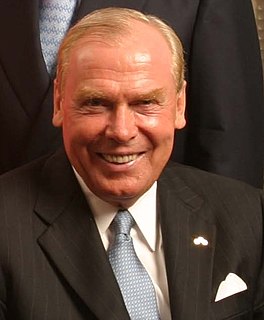A Quote by Robert Kennedy
Those who challenge the law in one or another of its aspects weaken the whole legal structure of society. For one man to disobey a law he does not like is to invite others to disobey another law which he may regard as indispensable to his own livelihood - or life.
Related Quotes
The law is equal before all of us; but we are not all equal before the law. Virtually there is one law for the rich and another for the poor, one law for the cunning and another for the simple, one law for the forceful and another for the feeble, one law for the ignorant and another for the learned, one law for the brave and another for the timid, and within family limits one law for the parent and no law at all for the child.
Whenever any American's life is taken by another American unnecessarily - whether it is done in the name of the law or in the defiance of the law, by one man or a gang, in cold blood or in passion, in an attack of violence or in response to violence - whenever we tear at the fabric of the life which another man has painfully and clumsily woven for himself and his children, the whole nation is degraded.
Only a law-order which holds to the primacy of God's law can bring forth true freedom, freedom for justice, truth, and godly life. Freedom as an absolute is simply an assertion of man's "right" to be his own god; this means a radical denial of God's law-order. "Freedom" thus is another name for the claim by man to divinity and autonomy. It means that man becomes his own absolute.
The rule of law does not guarantee freedom, since general law as well as personal edicts can be tyrannical. But increasing reliance on the rule of law clearly played a major role in transforming Western society from a world in which the ordinary citizen was literally subject to the arbitrary will of his master to a world in which the ordinary citizen could regard himself as his own master
Let's not even talking about chain migration, immigration, which is another trick, but all of these things are designed to penetrate the heart exactly is it has yours so that there can be a modification in the law, a moderation of the law here for this instance, and over here for another instance, and there for another.
In the state of nature, wrong-doing is impossible; or, if anyone does wrong, it is to himself, not to another. For no one by the law of nature is bound to please another, unless he chooses, nor to hold anything to be good or evil, but what he himself, according to his own temperament, pronounces to be so; and, to speak generally, nothing is forbidden by the law of nature, except what is beyond everyone's power.

































